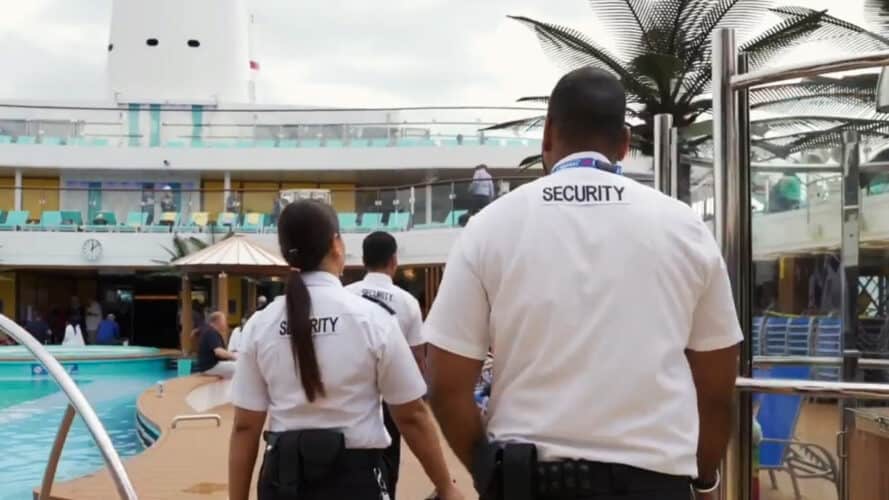Are Cruise Line Bans For Complaints Real? Passenger Rights Explained

The Reality of Cruise Line Bans for Complaints
The possibility of being banned from a cruise line after lodging a complaint is a concern for many potential passengers. The truth is, while it's not unheard of, cruise line bans for complaints are less common than you might think. Most issues are resolved internally through the cruise line's established complaint procedures. The severity of the complaint plays a significant role in determining the outcome.
- Bans are less common than you might think; most issues are resolved internally. Cruise lines understand that negative publicity can damage their reputation, so they often prioritize resolving complaints efficiently and fairly.
- Serious offenses (e.g., violence, drug trafficking, theft) are more likely to result in bans. These actions pose a risk to the safety and security of other passengers and crew, and cruise lines have a legal obligation to maintain a safe environment. A criminal record stemming from these actions would almost certainly lead to a ban.
- Minor complaints (e.g., dissatisfaction with service, subpar food quality, unclean cabin) rarely lead to bans. While these complaints are valid and should be addressed, they are generally handled through the cruise line's internal complaint resolution process. This usually involves refunds, credits, or other forms of compensation.
- Cruise lines prioritize customer satisfaction but also have legal protections. They have robust legal teams and established procedures designed to manage and resolve passenger disputes while also safeguarding their interests.
Understanding Your Rights as a Cruise Passenger
As a cruise passenger, you have specific rights and protections under various laws and regulations, depending on your nationality and the cruise line's jurisdiction. These rights are crucial in navigating any disputes that may arise.
- Right to a fair and transparent complaint process: Cruise lines are generally required to have a clear and accessible process for handling passenger complaints. This process should be documented in their terms and conditions or passenger bill of rights.
- Access to relevant cruise line policies and procedures: You have the right to request and review the cruise line's policies regarding complaints, refunds, and compensation.
- Opportunities for mediation or arbitration: Before resorting to legal action, many cruise lines offer mediation or arbitration as a way to resolve disputes outside of court. This can be a more efficient and cost-effective solution.
- Right to seek legal counsel if necessary: If you feel your rights have been violated and your complaint hasn't been adequately addressed, you have the right to seek legal advice and representation.
How Cruise Lines Handle Passenger Complaints
The process of handling passenger complaints varies slightly between cruise lines, but generally follows a similar structure. Documentation is key throughout the process.
- Most cruise lines have internal complaint procedures. These procedures usually involve contacting guest services, either onboard or after the cruise.
- Contacting guest services is usually the first step. Clearly explain the issue, provide relevant details, and keep a record of your communication (date, time, contact person, etc.).
- Escalation to higher management might be necessary. If your initial complaint is not resolved to your satisfaction, you can escalate the issue to a higher level of management within the cruise line.
- Documentation is crucial (photos, videos, witness statements). Gather any evidence that supports your complaint. This documentation can be invaluable in resolving the dispute.
Preventing Problems and Protecting Yourself
Taking proactive steps before, during, and after your cruise can significantly reduce the likelihood of encountering problems that could lead to complaints or even a ban.
- Read the cruise line's terms and conditions carefully. Pay particular attention to sections covering cancellation policies, liability, and complaint procedures.
- Keep detailed records of your cruise booking and any issues encountered. This includes booking confirmations, receipts, photos, videos, and notes documenting interactions with cruise staff.
- Communicate problems promptly to cruise ship staff. Address any issues as they arise, rather than waiting until the end of your cruise.
- Seek mediation or arbitration before pursuing legal action. These methods can often provide quicker and more cost-effective resolutions than litigation.
Specific Examples of Complaints and Potential Outcomes
Several common complaints can arise during a cruise. Understanding potential resolutions is essential.
- Example 1: Medical negligence – potential for compensation or refund. If you receive inadequate or negligent medical care onboard, you may be entitled to compensation for medical expenses and related losses.
- Example 2: Damaged luggage – potential for reimbursement. If your luggage is damaged or lost during the cruise, the cruise line may be liable for reimbursement, depending on their terms and conditions and the circumstances of the damage.
- Example 3: Onboard accident – potential for legal action and compensation. Accidents resulting in injury can lead to legal action and claims for compensation depending on liability.
Conclusion
While cruise line bans for complaints are possible, they are generally reserved for serious offenses that threaten the safety and well-being of others. Understanding your passenger rights, following proper complaint procedures, and taking proactive steps can help prevent problems and ensure a smoother sailing experience. Knowing your rights is crucial in resolving disputes effectively. Remember, the vast majority of cruise complaints are resolved amicably without resorting to bans.
Call to Action: Learn more about protecting your rights as a cruise passenger and avoid potential cruise line bans for complaints. Research your chosen cruise line's complaint policies and familiarize yourself with passenger rights legislation. Remember, being informed is the best way to prevent issues and enjoy a stress-free cruise!

 Project Muse Your Gateway To A Shared Academic Journey
Project Muse Your Gateway To A Shared Academic Journey
 X Files Reboot Cooglers Conversation With Anderson
X Files Reboot Cooglers Conversation With Anderson
 The Future Of Phones Nothings Modular Approach
The Future Of Phones Nothings Modular Approach
 Atff Futbol Altyapi Secmeleri Stuttgart Ta Bueyuek Bir Etkinlik
Atff Futbol Altyapi Secmeleri Stuttgart Ta Bueyuek Bir Etkinlik
 Technical Glitch Halts Blue Origin Rocket Launch
Technical Glitch Halts Blue Origin Rocket Launch
